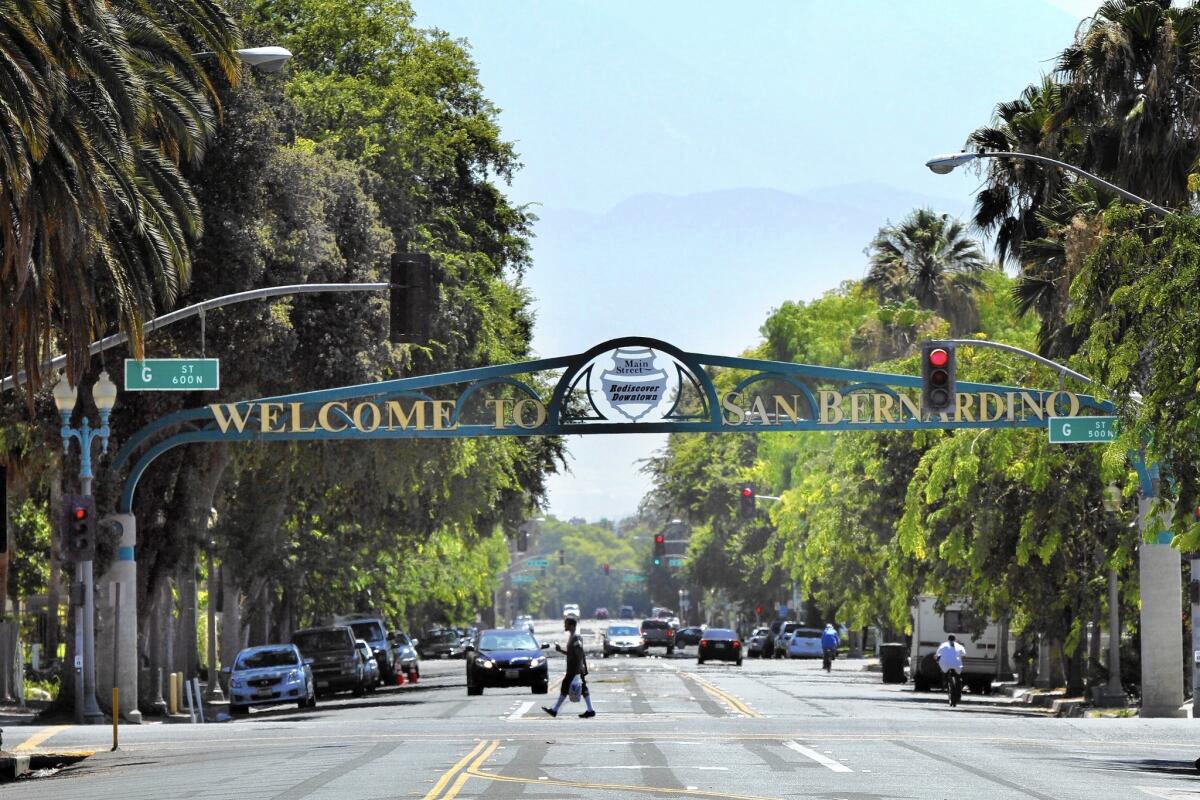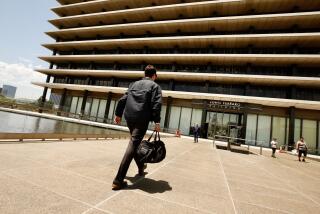San Bernardino offers plan to emerge from bankruptcy

The city of San Bernardino hopes to emerge from bankruptcy by making retirees cover more of their healthcare, contracting out firefighting and garbage services, and paying pension bond holders 1% of the $50 million it owes them.
Those are the highlights of a plan prepared by city leaders and released this week. It will be put to a City Council vote Monday and, if approved, submitted to U.S. Bankruptcy Court by the May 30 deadline set by a judge last fall.
The court will make the final determination.
In 2012, San Bernardino became the biggest U.S. city to declare bankruptcy — though Detroit soon displaced it for that distinction.
Reeling from the 2008 financial crash, the city saw its sales and property tax revenue plummet as its pension costs for police and firefighters soared.
Despite reducing its workforce by 250 people in three years, the city was running a $46-million deficit on a general fund budget of $120 million when it filed for bankruptcy.
Public safety accounted for 76% of the budget.
City Manager Allen Parker, who was hired after the bankruptcy, said the cuts led to higher crime and slower response times by the Fire Department in some parts of the city, which has a population of 215,000.
To save money, the city has put off replacing vehicles and delayed maintenance on some buildings. It has also continued to downsize its workforce, which now stands at about 900, down from a peak of roughly 1,400.
Under the proposal for exiting bankruptcy, the city would lose an additional 115 employees by contracting out for fire service and 100 more by privatizing garbage pickup.
The firefighters union has several lawsuits pending against the city, alleging that it has broken agreements over pay, benefits and staffing levels.
The city would save $370,000 a year by making retirees pay a greater share of their healthcare. Under an agreement reached last year, the city has already moved to protect pensions. It plans to pay off its $14-million debt to the California Public Employees Retirement System and has been making payments.
Other pension bond holders have fought unsuccessfully in court for a similar deal, Parker said. “They were high-risk bonds,” he said. “They take what’s called a haircut. A haircut is pennies on the dollar.”
He said the city has little choice but to pay off other loans in full because they are secured by city property.
The city expects revenues of about $125 million for the next fiscal year. The general fund budget would still run a deficit of $20 million, mostly unpaid bills that city officials hope to negotiate away or defer to future budgets.
Parker said the city plans to use savings from the bankruptcy to add 30 police officers over the next decade, bringing the total force to 270.
“You have to make the city not only financially solvent,” he said. “You have to make it service solvent.”
More to Read
Sign up for Essential California
The most important California stories and recommendations in your inbox every morning.
You may occasionally receive promotional content from the Los Angeles Times.












